
There are many reasons why people turn to audiobooks to get their literary fix. They are a great distraction on long journeys, and offer a way to pass the time when out and about. There’s no denying audiobooks are one of the most convenient ways to read – yes, I said ‘read’ not ‘listen’, too many people are snobbish about audiobooks, but in my opinion whichever way you decide to enjoy books is fine by me.
But while they offer a convenient option for many, they are often the only option for people in the chronic illness community. Many of us have an illness, physical disability or mental health condition which impacts on our ability to read or hold books. This makes audiobook apps and subscriptions a vital service.
Personally, when my health deteriorated to the point where I was unable to read books, I was devastated. I have always loved immersing myself in new worlds and travelling to places I could only dream of visiting.
But then I discovered audiobooks and my passion was reignited.
So, if you are a book lover like me, but you struggle reading text or hold a physical book, this post is for you.
I’m sure everyone reading this has heard of Audible, it’s the largest and most popular audiobook platforms. But did you know there are many other ways to enjoy audiobooks, some of which are free?
In the following post I will talk you through the six ways I enjoy reading audiobooks. I will discuss the pros and cons of each method so you can decide which option is best for you.
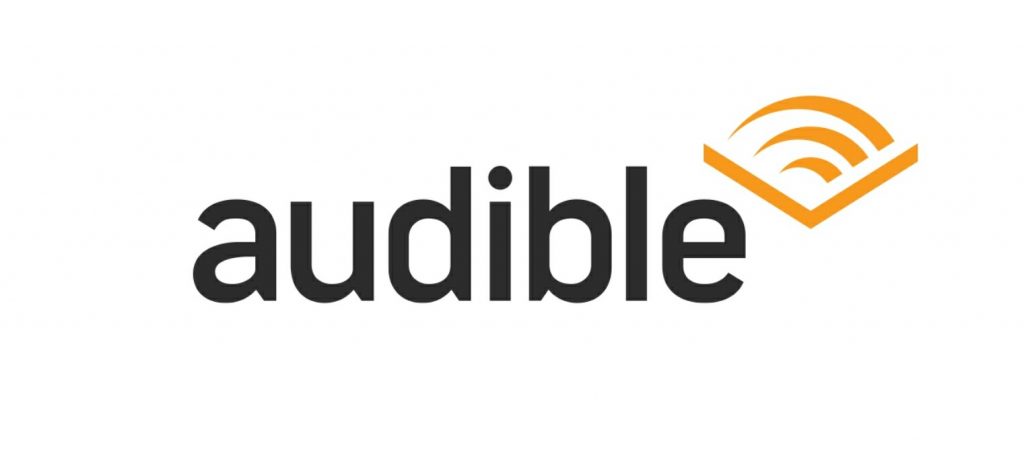
1. Audible
Let’s start with the most well known way to enjoy audiobooks, Audible.
Audible remains the powerhouse in the audiobooks field, with more than 150,000 titles in its library. It is owned by Amazon and it’s the largest and most advanced audiobook service in the world, offering exclusive titles, audio shows, and book series.
Audible offers a subscription service with membership prices start at £7.99 a month, which allows you to buy 1 book a month. They also have a 2 book monthly membership (£14.99 a month). Although, if you can afford it, paying yearly offers further discounts. It can be quite expensive, but there’s no denying their catalogue is the most comprehensive, with many newly released titles.
Buying full price books without membership is very expensive. But you can buy cheaper books that are on offer without signing up as a member.
Audible also offers a “Daily deal” which ranges in price from £1.99-2.99, and on the run up to Christmas some are even 99p. These deals are a bit hit and miss but I have discovered some great new books and authors this way.
Once you have purchased a book it is yours to keep forever. I like this as I often re-read books especially when my brain fog is bad and I need a less taxing activity.
If you are not already a member, or haven’t been in the past, you can sign up to a 30 day free trial (1 free book)
Pros: extensive library, good quality recordings (mostly), you can return a book if you are not happy with it and receive your credit back. It’s easy to set up if you already have an Amazon account. Books remain in your personal library forever.
Cons: it’s expensive. You are limited to the number of books you can buy with your membership
My rating: 4 star

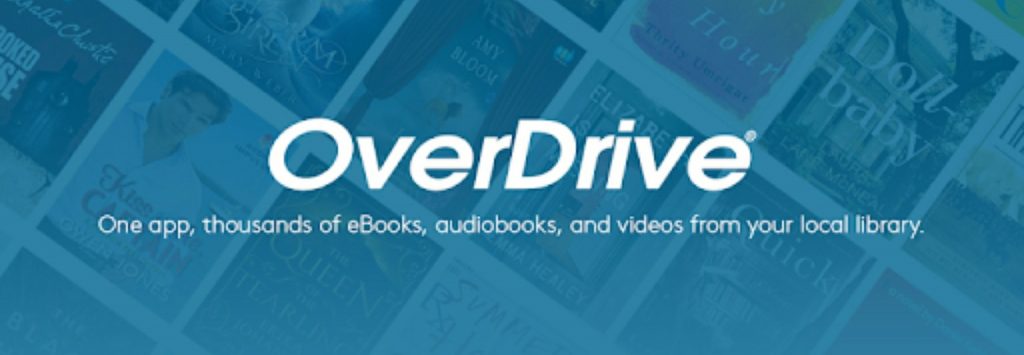
2. Use your library membership (free)
Why spend a ton of money on audiobooks if your local library already has a digital media lending system?
Over 30,000 libraries around the country use a system called Overdrive (over platforms are commonly used too including BorrowBox and RBdigital) to loan digital books to cardholders. There’s also an easy-to-use companion app called Libby that searches for audiobooks (and ebooks, too) at your local library.
This is a great free way to enjoy audiobooks. All you need is your library card and a free app. If you are not currently a member of your local library then it’s really worth signing up. It’s free and a pretty straightforward process.
You will need to download the app Overdrive (or Libby), and set up an account using your library membership details.
Sadly the selection of audiobooks on offer at my local library is very limited, but it’s free and you may find your local library has a more comprehensive catalogue. The selection of ebooks is a bit better so if you are able to read text this might be a good option.
Unlike Audible, you only borrow the books and they have to be returned at the end of the loan period – just like library books.
You also have to reserve books if they are “on loan” already. I find this a bit odd as they are digital copies so surely they can be borrowed an unlimited amount of times?
Pros: it’s free. You just need your library card and an app. It’s easy to set up if you already have a library membership.
Cons: you only borrow the books not keep them. Limited catalogue of books.
My rating: 3 star

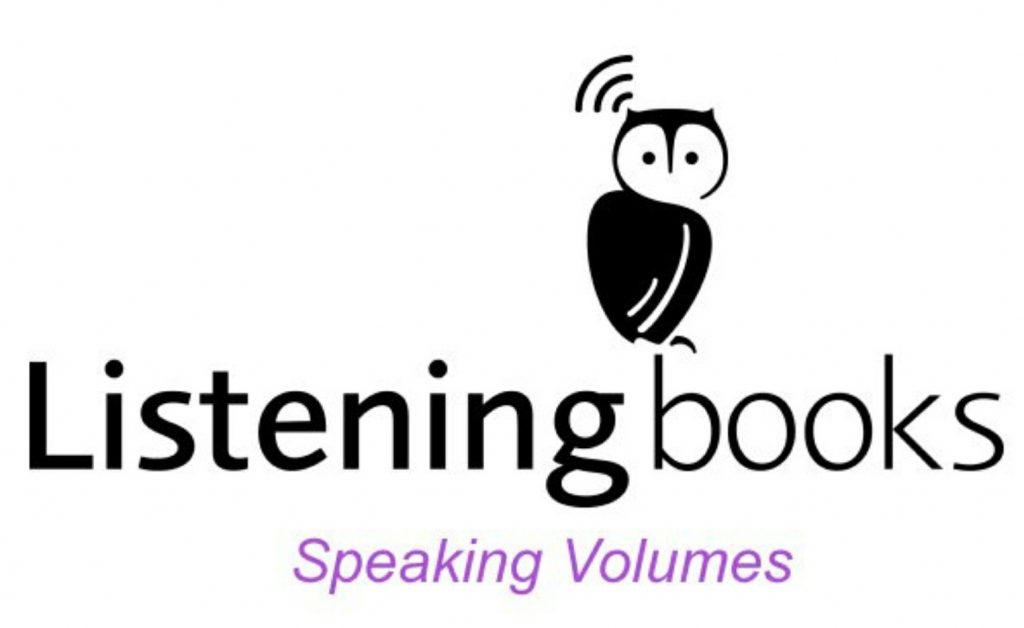
3. Listening Books (charity)
Listening Books is a charity that provides audiobooks for anyone who finds that an illness, physical or learning disability or mental health condition impacts on their ability to read or hold books. I think they offer a brilliant service and they currently have over 60,000 members across the UK.
Their aim is to make books accessible to everyone no matter their disability. But don’t worry, they do not ask for any proof of your disability, and do not restrict who can join.
I only discovered Listening books recently but so far I’ve been really impressed.
They provide audiobooks on 3 easily accessible formats: through the post on MP3 CD, or downloaded and streamed online. Members can choose from a range of options to find the service that best suits their needs.
The charity charges a membership fee but this is heavily subsidised. Which means membership is cheap compared to Audible – prices start from £20 a year (£1.66 a month). They even offer a limited number of free memberships for anyone who is unable to afford the cost.
I have spoken to them a few times via email and they have been quick to answer my questions, and their patron us Stephen Fry. The charity was actually established in 1959, so I have no idea how I hadn’t heard of them before now.
Membership is easy to set up click here to find out more.
Once your membership has been processed you are given easy to follow instructions on how to set up Listening books on your chosen device. Listening Books also offers a postal service
Listening Books also uses the app Overdrive (or Libby). Books are borrowed not bought, but you are not limited to one or two books per month like Audible.
Although the selection of books is not as extensive as Audible, I have been very impressed with the library catalogue size and they regularly add new titles. I searched a few of my favourite authors before paying to become a member and most of them were available to download.
Pro: low cost. Good selection of books. You can borrow multiple books a month. Good quality recordings. It’s easy to set up.
Cons: you only borrow books, you cannot keep them. Selection is not as extensive as Audible.
Other charities offering audiobook services:
Talking books is run by RNIB. It’s a free service, and you don’t necessarily have to be blind or partially sighted to take advantage of it. Other conditions affecting your ability to read are taken into consideration, and applications are assessed on a case-by-case basis.
Calibre Audio Library is another charity offering a way to enjoy audiobooks. Calibre provides a subscription-free service of unabridged audiobooks for adults and children with sight problems, dyslexia or other disabilities, who cannot read print. It offers a streaming service, with around 12,000 titles on offer. A 3 month free trial is available, after which a one off lifetime membership fee of £35 is payable.
My rating: 4 star

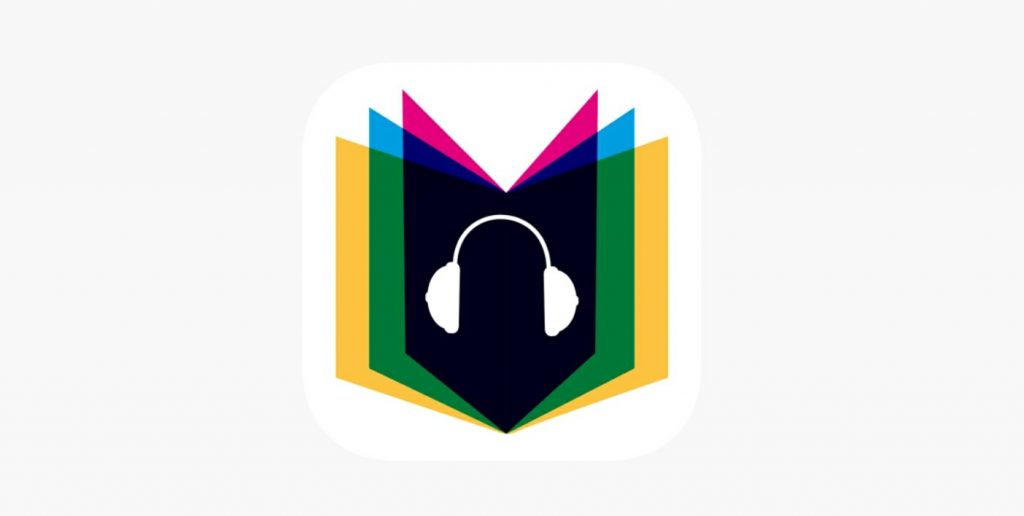
4. Free audiobook apps
You can get audiobooks for free using one of many apps.
Legitimate and free audiobooks are available. These books are old, but it’s a great chance to review the classics. These books are read by volunteers to make the books accessible to everyone, including those with visual impairments.
There are a few apps available which allow you to listen to audiobooks for free. Here are four I have tried;
- LibriVox
- Free audio books
- Free books and audiobooks
- Oodles
The obvious plus side is they are free. The apps are also easy to set up. But the library of books in these apps is very limited and I have found the quality of some of the recordings is not great. Also the apps often have pop up advertising which can be annoying.
You will not find new releases on these apps. But if you like reading the classics or would like to reread your favourite books from your youth, this may be a good option.
Pros: it’s free, and easy to set up
Cons: very limited selection of books and poor sound quality at times. Some contain annoying adverts.
My rating: 2 star

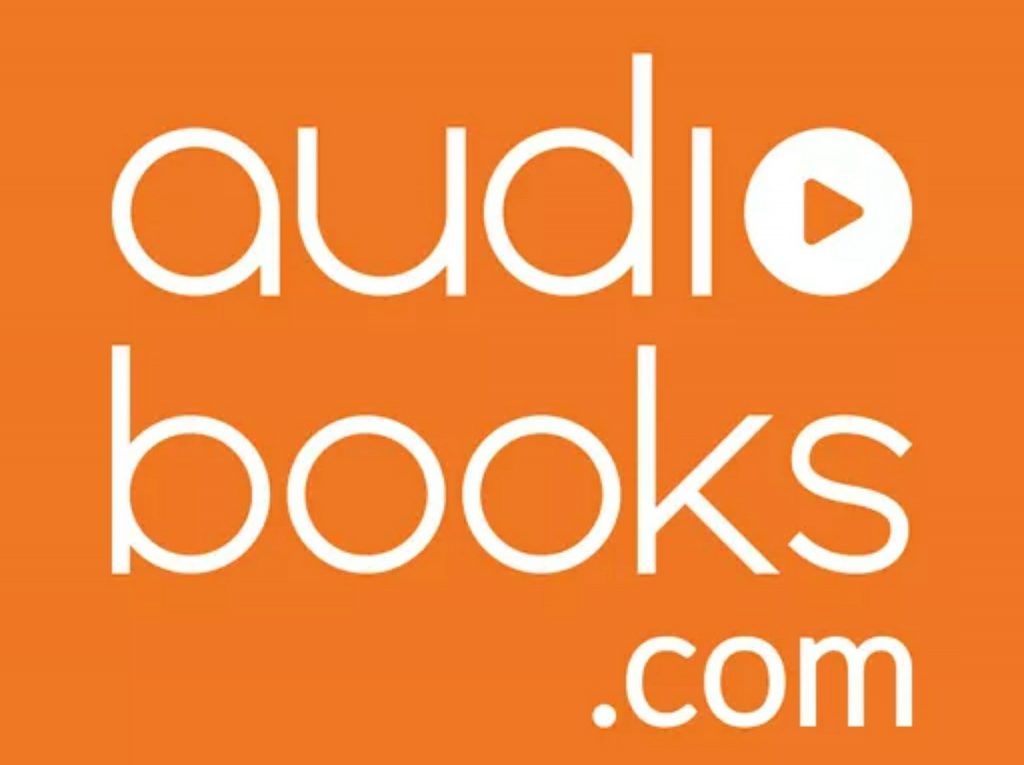
5. Audiobooks.com
Audiobooks.com offers a similar service to Audible, and the cost is comparable too.
The site offers over 100,000 premium audiobooks. Over 7,000 can be downloaded for free. Audiobooks.com gives access to both free titles and paid bestsellers.
Just like Audible you can sign up for a subscription service, or pay for individual books. They also offer a free trial which is a great way to find out more about this service, and get a free book. Membership is £7.99 a month, but unlike Audible this allows you to purchase 2 books every month – 1 premium + 1 VIP book.
Although Audiobooks.com and Audible are similar, I find Audiobooks.com a slightly cheaper option for buying stand alone books (outside of the membership allowance), and also the number of books you can buy on your subscription makes Audiobooks.com a more attractive option.
Pros: extensive library, good quality recordings (mostly), free titles available although limited. Books remain in your personal library forever. It’s easy to set up.
Cons: it’s expensive. You are limited to the number of books you can buy with a membership
My rating: 4 star


6. Google Play Books
Google Play Books was previously just for the purchase of ebooks, but more recently they added in audiobook features, allowing you to listen to your purchased audiobooks across platforms and devices. Unlike other audiobook services, Google Play Books doesn’t run on a monthly subscription, instead it allows users to preview audiobooks and then buy what they want over the Google Play Books marketplace.
I find Google play books is more cost effective than subscription services like Audible and Audiobooks.com for one-off purchases. There is a good selection and most are reduced in price. The option of buying a new release audiobook without having to sign up for a membership is probably the most attractive feature of Google play books. Regular offers like £3 off your next purchase also make this service an attractive platform.
Google play books has a wide selection of audiobooks. However, if you are a regular reader, this is probably not the cheapest option.
Pros: extensive library, good quality recordings (mostly), you do not have to sign up for a subscription service. Books remain in your personal library forever. Regular sales which make one-off purchases cheaper.
Cons: expensive if you are a regular reader.
My rating: 3 star

What is the best way to enjoy audiobooks?
Which option is the best for you will depend on your circumstances and budget. Each option offers its own advantages and disadvantages.
Audible offers the widest selection and is the best option for new releases. You also purchase books rather than borrowing them which means you can re-read them as often as you like. But you are limited to 1-2 books a month depending on your membership level. It’s also the most expensive option, but you can get around this by making the most of their daily deals.
Audiobooks.com offers a similar service, but works out to be slightly more cost effective.
Borrowing audiobooks using your library membership is a great free way to enjoy audiobooks, and the Overdrive and Libby apps are easy to use. But the selection can very limited (This of course depends on what area you live in)
Listening Books offers a much better selection than borrowing books using your library card, and membership is a lot more affordable than Audible or Audiobooks.com. You are also not limited to 1-2 books a month.
Listening to audiobooks using free apps, although free, the options are very limited and the quality of recordings are poor at times. You also may have the annoyance of pop-up advertising.
Google play books is a more affordable option than Audible or Audiobooks.com for one-off purchases, and not being tied to a monthly subscription makes it an attractive option. Google play books also offers a wide selection of books, but may not be the best option if you are a regular reader.
For me personally, my new favourite way to enjoy audiobooks is Listening Books. Listening Books offers the best of both worlds; low cost and a good selection of books.
Do you enjoy reading audiobooks? What is favourite reading platform?
For more personal stories, reviews, news, inspirational quotes and in-depth discussion, please head over to my Facebook page.

This is very helpful Thankyou ❤
I hadn’t heard of 5 of those – thank you for sharing 🙂
You’re welcome Alice. I’m glad you found the post useful.
Useful reviews and great to see, but I think you’re under-rating public libraries by just including OverDrive: most library authorities in the UK offer bigger eAudio selections on other platforms, such as BorrowBox and RBdigital, and primarily run OverDrive for eBooks. As ever, though, what you can access from your library service depends very much on where you live and how well funded it is.